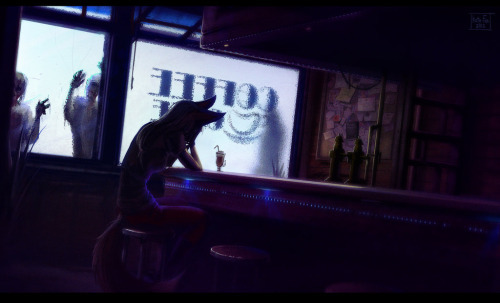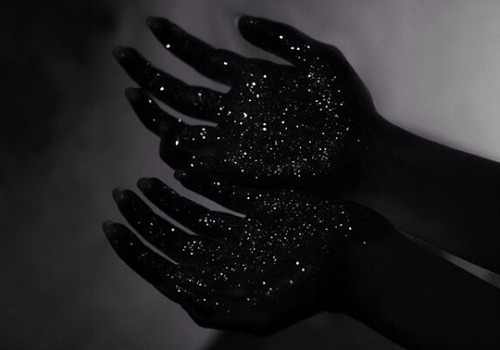Katherine Frances's Blog, page 366
May 29, 2015
–(x)
–(x)
Copyright: Inspiration vs Plagiarism
Anonymous asked:Hello! I have a lot of story ideas that are my own but also draw inspiration from already published and well-known works of fiction. How do I write my story and pull from the other story as my inspiration without plagiarizing them but still give them credit for being my “inspiration”. Is that even possible? Thank you in advance!
Writers borrow from each other all the time, but there’s a big difference between drawing inspiration from someone and borrowing an actual idea. For example, J.K. Rowling might have inspired you to write about a magical school. That’s not plagiarism because J.K. Rowling didn’t invent the concept of magical schools. However, you couldn’t write about a wizardry school house in a Scottish castle–that is too specific to J.K. Rowling’s idea of Hogwarts, and that would be plagiarism. You might be inspired by quidditch and create your own magical game, but it could not be played on broomsticks in a stadium and involve chasing enchanted/flying balls.
So, don’t borrow ideas from other writers. Instead, let the ideas of other writers inspire you to come up with your own ideas. They can be similar but they should mostly be different. In that case–being inspired by the ideas of other writers, it isn’t common or even necessary to give credit in that way. If a particular author had a huge influence over you as a writer, you might acknowledge them in the credits of one of your books, but that’s about it.
May 28, 2015
–(x)
Writing Characters With Mental Illnesses or Disabilities
Before I link today’s resource posts, I wanted to take a minute to write out my thoughts on a subject that is near and dear to my heart (and my life). I’ve actually been trying to write this post for a while now, but I’ve been struggling to put the way I’ve been feeling into words (which is a problem I deal with disturbingly frequently, given that I’m a writer).
Please don’t use mental illness or disability as flavoring for your character.
What I meant when I say this is that I have seen characters who supposedly have a mental illness who never suffer from a single symptom. I have seen characters who are written to have a disability, and then given a method of “canceling out” the actual ways in which that disability impacts their lives so that they might as well not have it in the first place.
Do not do this. Don’t do it to me and don’t do it to the millions of other people in the world living with mental illnesses or disabilities. For everyone’s sake, do better. It’s not edgy or cool to give your character depression just because you want a reason for them to contemplate suicide on a regular basis. It’s not a new and interesting spin on the story of an autistic character to make them a walking encyclopedia of random facts. It’s not okay to pay lip service to a character being vision-impaired and then write them like a seeing character, nor to write a deaf character who somehow magically never has trouble understanding other people. Your character is not automatically more nuanced, well-rounded, or fleshed out because you slapped the label of “mental disorder” or “disability” or “chronically ill” on them and declared them to be a unique and special snowflake.
I touched a little bit on why this is a problem before, but let me reiterate it here. As a person who is living with a dissociative disorder, I tend to look for media featuring characters like myself. Often, those characters have a dissociative identity disorder and are portrayed as dangerous, unstable, or violent. I, myself, am none of those things, but this portrayal is what makes it hard for me to tell people that I have a dissociative disorder that sometimes prevents me from experiencing the world in the same way they do, because that is the image that people associate my particular mental illness with. I need better representation, and so do the other people who are consuming that media because it might be the only time they encounter information about dissociative disorders.
Mental illness and disability are not flavors. For those of us living with them, they impact every area of our lives: how much we sleep, how much energy we can devote to certain tasks, whether or not we have to take medication just to function, whether we’re in pain, whether we can handle long periods of social interaction, how we react to certain situations and settings…everything. The list goes on and on. If it’s truly important for your character to have a mental illness or a disability, be prepared to do some really in-depth research on exactly how it’s going to affect them and their life. Be prepared to really write what you’re saying you want to write.
I need to see more characters in fiction who have mental illnesses or disabilities and who are treated with compassion, understanding, and acceptance by both their authors and the other fictional characters around them, and so do you. I need to see these characters living full and rich lives, not as “inspirations” to readers or other characters, but because people can have mental disorders or disabilities and still have full, rich, lives, and often do. We have friends and family, likes and dislikes, hobbies, flaws, skills, personalities - everything that people who are not mentally ill or disabled have. You need to write characters like us accordingly.
I’m not saying don’t write characters who have mental illnesses are disorders. Please, write them! We need that kind of diversity! I’m just saying that you need to do your research and make a concentrated effort to understand what you are writing and to communicate information about what you’re writing to your readers. Whether you’re writing a character who has trouble processing speech and needs a few seconds to parse what other people are saying, a character who needs to stim in order to focus, a character who needs a friend to read the menu board at a new coffee house to them, or a character who’s annoyed because places that legally should be wheelchair-accessible aren’t, do your research. Write the character’s personality, traits, likes, dislikes, etc. with the knowledge that you cannot separate the person from the illness or disability and that they are not less of a person because of that.
Now for some other perspectives on this and some resources:
fuckyeahdisabilityeducation is a great Tumblr resource if you have questions.
teenink.com: Stop Romanticizing Mental Illnessvisibilityfiction.com: Getting it Wrong - Writing Disability in Fiction
thewritingcafe: Let’s talk about romanticizing mental illness/neuroatypicalitywhataboutwriting: Mental Illness - The Character Is Not Their Disorder
writeworld‘s mental disorder, disease, and disability tags. Particularly, How NOT to Write Disabled People.
referenceforwriters‘ 5 Step Guide On Writing A Character With X Disorder Or X Diseasefixyourwritinghabits‘ mental disorders, mental disabilities, and disability tags.fuckyeahcharacterdevelopment‘s disorders, diseases, and disabilities tag.There are so many more resources out there (some of these links lead to more links) but I hope that this small sampling can get you started on the right track. Good luck!
-Kyo
I want to emphasize that we want to see characters like us. That is very, very true. And we don’t really want to see them portrayed as a tragedy, or an inspiration, or a cautionary tale, certainly not as dangerous (not while the current attitude toward mental illness and the sad state of representation today is the way it is).
It shouldn’t be that intimidating. It really shouldn’t.
There is a wide pool of people on Tumblr who have the conditions you are writing about and while nobody is obligated to help you out, many of us would be happy to.
I personally will be happy to answer any questions you might have about depression and bipolar II, panic attacks, and what it’s like living with an anxiety disorder. MORE than happy.
Because facts are not something that is going to hold you back in terms of what you can do with your characters – it’s something that will make your writing fresher, better, more real, and more appealing, as well as more helpful to, people who are like the characters you are portraying.
Trust me, people, mentally ill folks are really damn heroic, and we deserve a place in the spotlight, and it really doesn’t cost you anything but some research and a little conversation to get it right.
If you can make the world suck a little less, and write while you’re doing it, why not?
–Visceral Definitions by K-frances
"If you’re writing about a character, if he’s a powerful character, unless you give him vulnerability..."
- Stan Lee (via fictionwritingtips)
writeworld:
Writer’s BlockA picture says a thousand words....

A picture says a thousand words. Write them.
Mission: Write a story, a description, a poem, a metaphor, a commentary, or a critique about this picture. Write something about this picture.
Be sure to tag writeworld in your block!
May 25, 2015
writeworld:
Writer’s BlockA picture says a thousand words....

A picture says a thousand words. Write them.
Mission: Write a story, a description, a poem, a metaphor, a commentary, or a critique about this picture. Write something about this picture.
Be sure to tag writeworld in your block!










